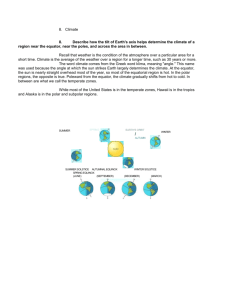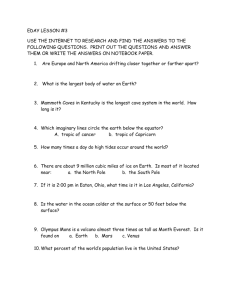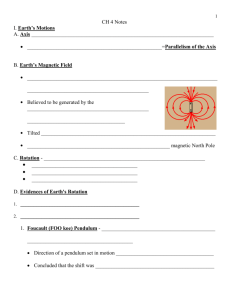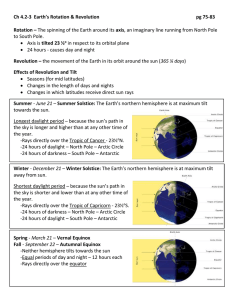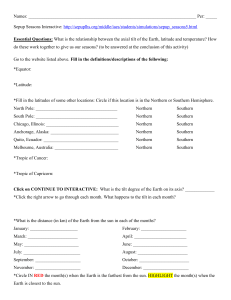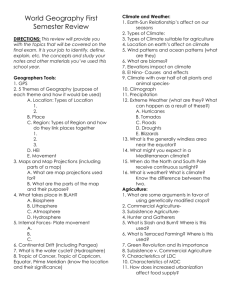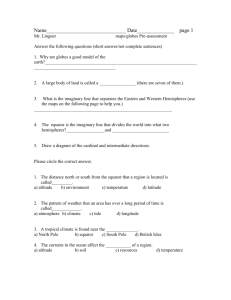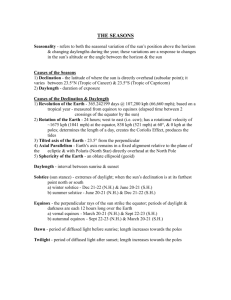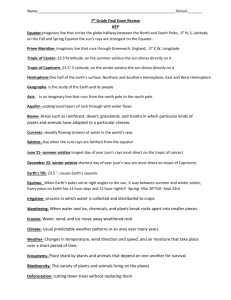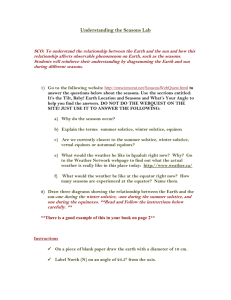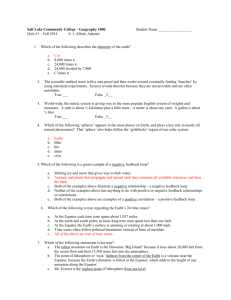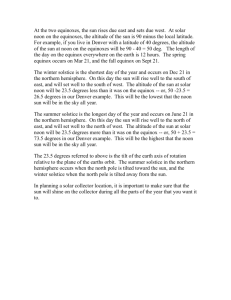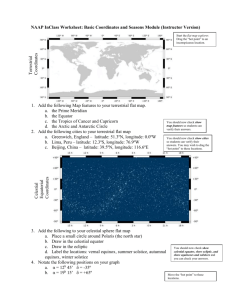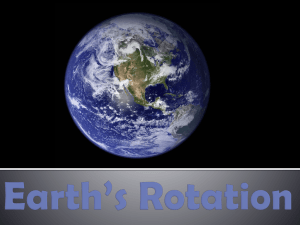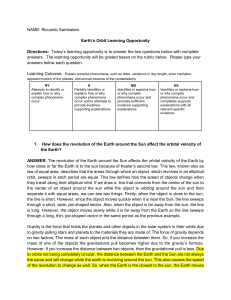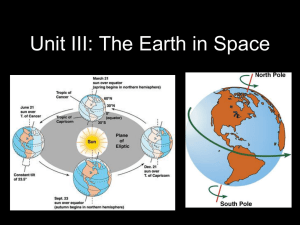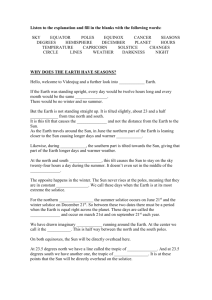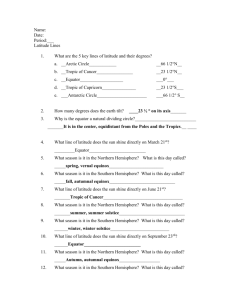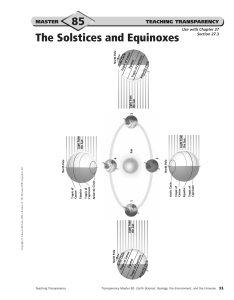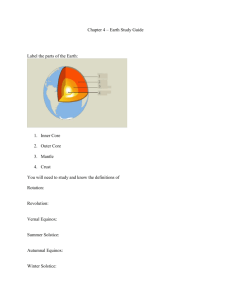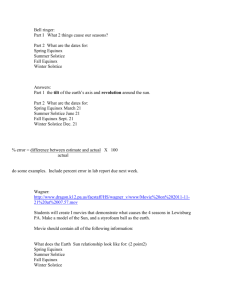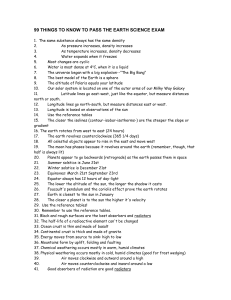The Sun`s Path ppt
advertisement
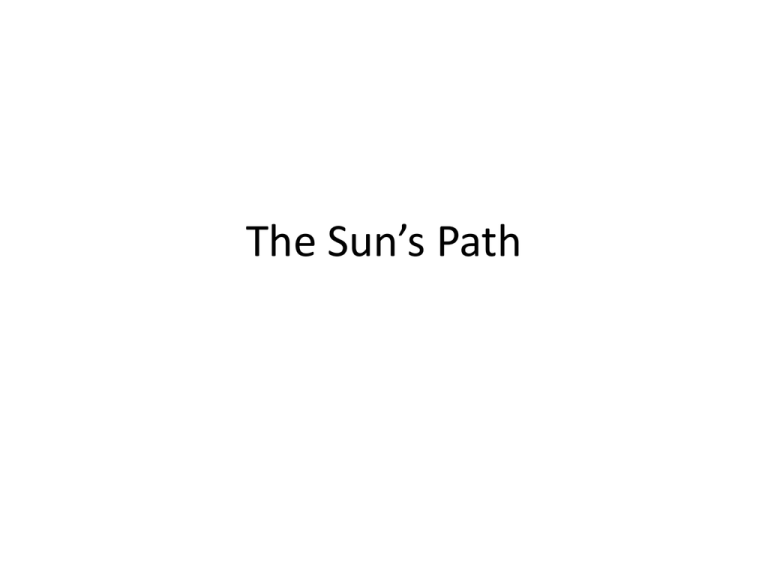
The Sun’s Path Summer Solstice (approximately June 20-21) • • • • • • North Pole: The North Pole (90 degrees north latitude) receives 24 hours of daylight, as it has been daylight at the North Pole for the last three months Arctic Circle: It is light 24 hours a day north of the Arctic Circle Note: because of the 23.5 degree axial tilt… @ the Tropic of Cancer: On the June Solstice the sun is directly overhead the Tropic of Cancer (23.5 degrees North ) at noon. YET…. @Equator: At the equator (zero degrees latitude), the day is always 12 hours long. At the equator, sun rises daily at 6 a.m. local time and sets at 6 p.m. local time. The sun at noon at the equator is 23.5 degrees off the zenith. Winter Solstice (approximately Dec. 20/21) • • • • • • • North Pole: At the North Pole, it has been dark of three months (since the September Equinox). It remains dark for another three (until the March Equinox). Arctic Circle: All areas north of the Arctic Circle are dark on the June Solstice. Note: because of the 23.5 degree axial tilt… @Tropic of Capricorn: The sun is directly overhead the Tropic of Capricorn on the December Solstice. (23.5 degrees S) @Equator: The sun is 23.5 degrees from zenith at noon. YET…. @Equator: The sun is 23.5 degrees from zenith at noon. Equinoxes: March 21/22, Sept. 22/23 There are 12 hours of daylight and 12 hours of darkness at all points on the earth’s surface on the two equinoxes. Sunrise is at 6 a.m. and sunset is at 6 p.m. local (solar) time for most points on the earth’s surface. Everywhere on the Earth will have 12 hours of day and night, but because of your latitude, the ALTITUDE OF THE Sun’s Path will vary ONLY AT EQUATOR WILL ON EQUINOX DAY WILL THE SUN RISE DUE EAST AND SET DUE WEST.
